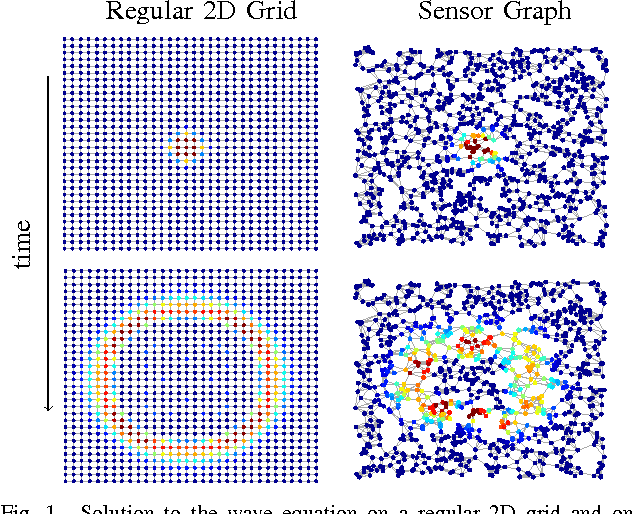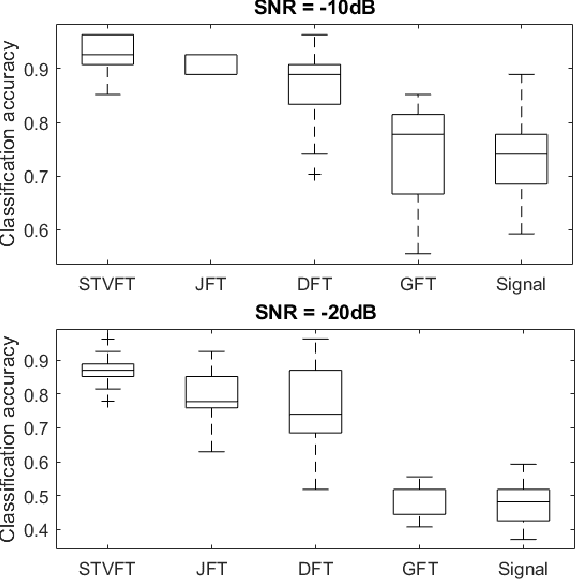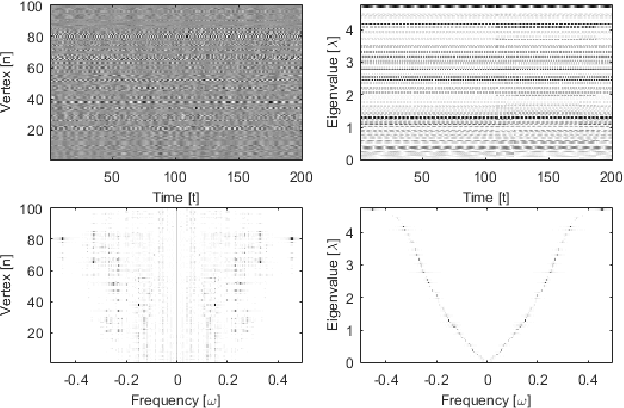A Time-Vertex Signal Processing Framework
Paper and Code
May 05, 2017



An emerging way to deal with high-dimensional non-euclidean data is to assume that the underlying structure can be captured by a graph. Recently, ideas have begun to emerge related to the analysis of time-varying graph signals. This work aims to elevate the notion of joint harmonic analysis to a full-fledged framework denoted as Time-Vertex Signal Processing, that links together the time-domain signal processing techniques with the new tools of graph signal processing. This entails three main contributions: (a) We provide a formal motivation for harmonic time-vertex analysis as an analysis tool for the state evolution of simple Partial Differential Equations on graphs. (b) We improve the accuracy of joint filtering operators by up-to two orders of magnitude. (c) Using our joint filters, we construct time-vertex dictionaries analyzing the different scales and the local time-frequency content of a signal. The utility of our tools is illustrated in numerous applications and datasets, such as dynamic mesh denoising and classification, still-video inpainting, and source localization in seismic events. Our results suggest that joint analysis of time-vertex signals can bring benefits to regression and learning.
 Add to Chrome
Add to Chrome Add to Firefox
Add to Firefox Add to Edge
Add to Edge